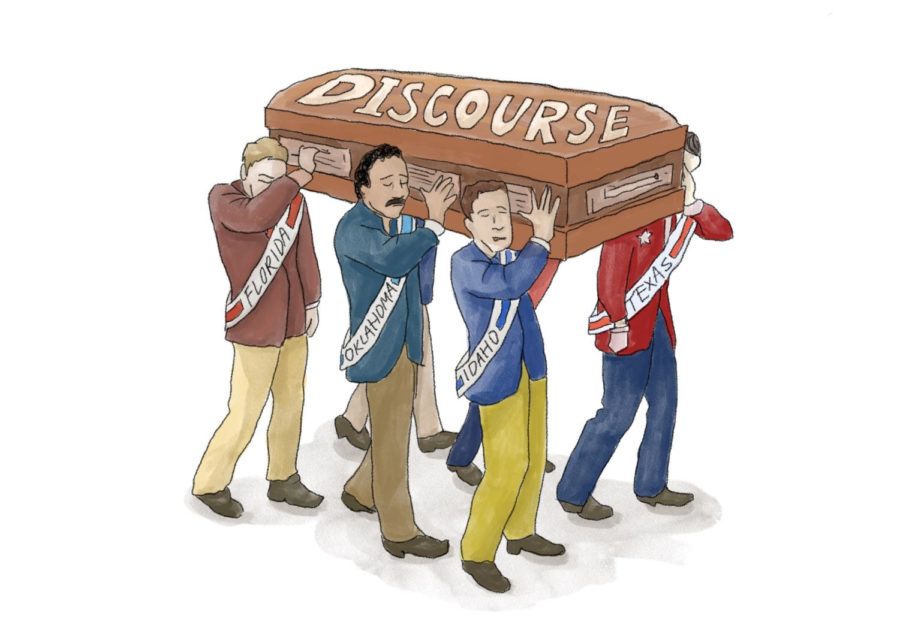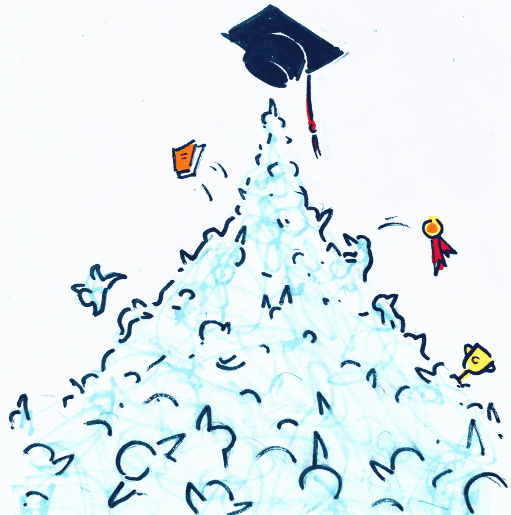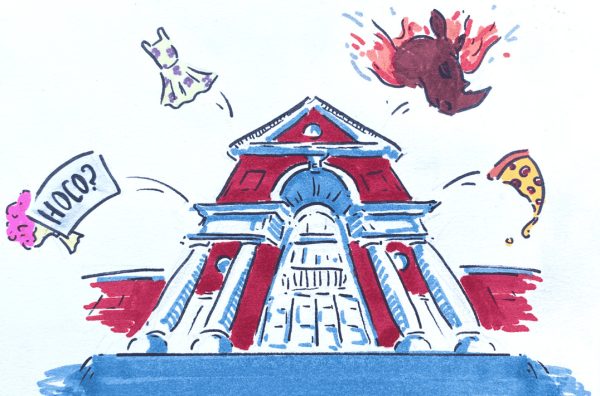The Death of Discourse
In October, Nikole Hannah-Jones, founder of the 1619 Project, a New York Times exploration of the legacy of slavery and racism in America, was invited to speak at the Middlesex School for Black History Month. Then, she was uninvited. The revocation of Ms. Hannah-Jones’ invitation sparked outrage among students and parents and underscored a widening trend towards “canceling” and “disengagement” on school campuses. Over the past two years, a national movement to restrict the way schools teach history by censoring Critical Race Theory (CRT) and the 1619 Project has gained popularity. As of February 8, 2022, 37 states have introduced bills to ban or restrict education on race and bias in schools. Fourteen states have passed such bans, and five have rejected them; eighteen states have bans that are still pending, eleven of which were just proposed in December 2021 and January 2022.
The growing emergence of directives on what you cannot talk about in classrooms is creating a chilling atmosphere of self-censorship in schools across the nation. Nine states (Arkansas, Georgia, Indiana, Louisiana, Ohio, Rhode Island, Virginia, West Virginia) have proposed bills prohibiting the discussion of “divisive” concepts. The state of Georgia proposed a bill banning “indoctrination,” although the definition of what is “divisive” or “indoctrinating” is somewhat ambiguous. Four states have proposed bills explicitly prohibiting the discussion of the “1619 Project,” and fourteen states have introduced bills forbidding the discussion of “CRT” (four of which have passed and ten of which are still pending).
Because violations of these bans are arguably challenging to monitor and enforce, some states, such as Idaho and Florida, have established several formal complaint channels and civil suit mechanisms that allow parents to police discussion of banned subjects in schools. In many cases, these complaint channels are one-sided and give parents, but not teachers, the right to recourse. The Florida “Stop W.O.K.E. Act” announced on December 15, 2021, by Governor DeSantis, for example, gives parents a “private right of action” to sue and to collect attorney’s fees. In Oklahoma, a parent complaint system places egregious, punitive pressures on teachers, stipulating that “any school employee that parents name in their petition could be personally responsible for up to $10,000 in damages.” According to the American Civil Liberties Union, school districts in the state have told teachers to avoid using terms such as “diversity” and “white privilege” in their classrooms. They have removed seminal works such as To Kill a Mockingbird and A Raisin in the Sun from reading lists.
We seem to be on a path of self-sabotage, undermining our own First Amendment rights and compromising our cherished tradition of free speech. In a free market, don’t the best ideas invariably prevail anyway?
Many parents are unhappy with a historical narrative they fear paints America as inherently racist and defines American identity as one founded upon bigotry and slavery. Politicians, in turn, have capitalized upon this angry sentiment and co-opted parents into their crusade against historical narratives they claim are engendering unpatriotism, disunity, and civic irresponsibility. Parents, in turn, are being made into watchdogs for politicians and their censoring policies. But politicians and policymakers are well aware that America’s past is more complicated than how it is portrayed in our existing national narrative. Isn’t the very purpose of education to learn how to lean into discomfort and ambiguity, to challenge and reconcile conflicting ideas, and to engage with complexity and compassion? Turning the classroom into sterile environments for sanitized narratives will have damaging consequences for education in America. If students are only fed a singular and exclusionary perspective, aren’t schools just turning into breeding grounds for obedience and conformity?






